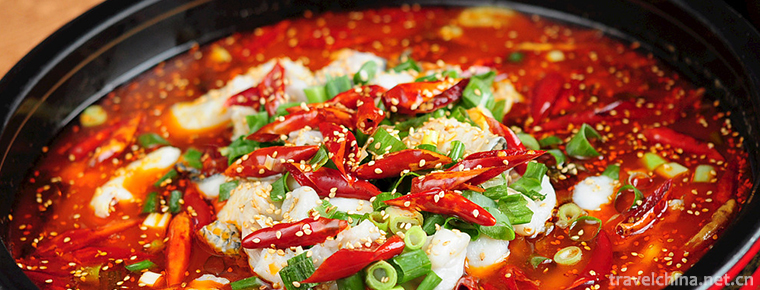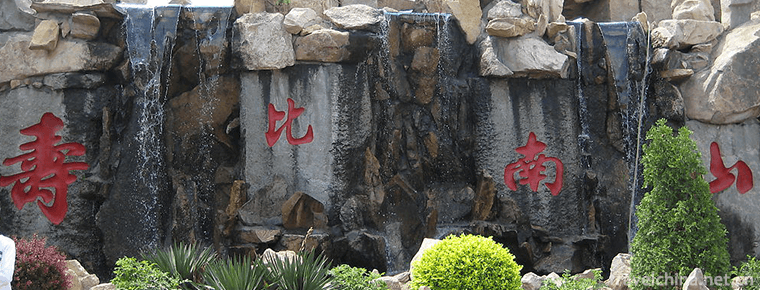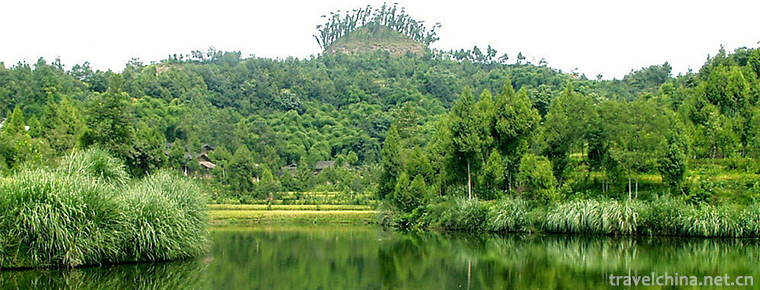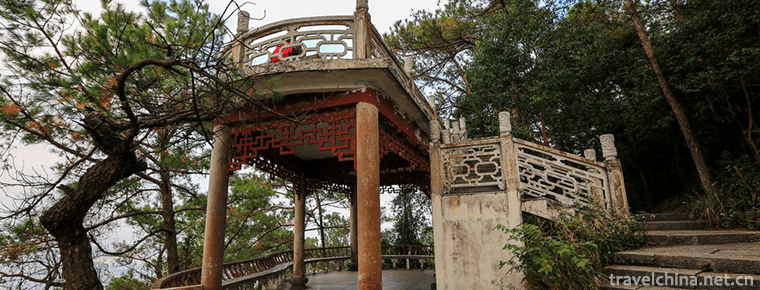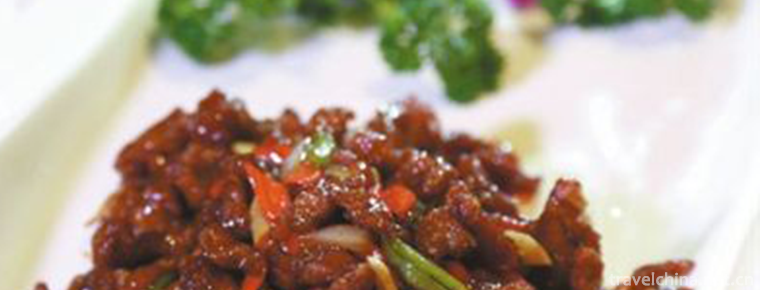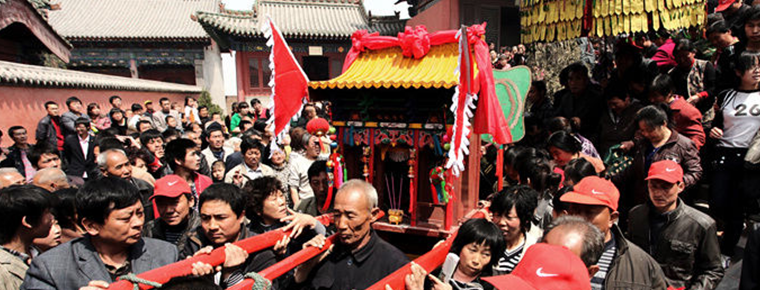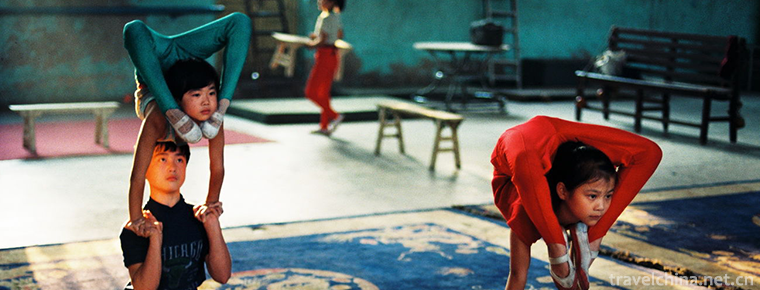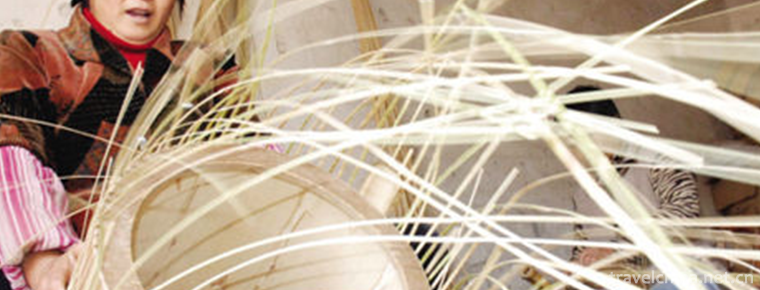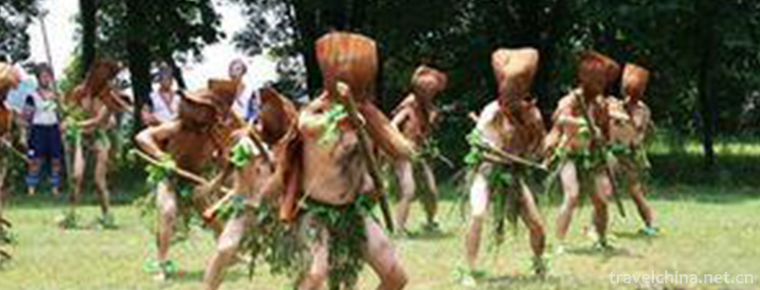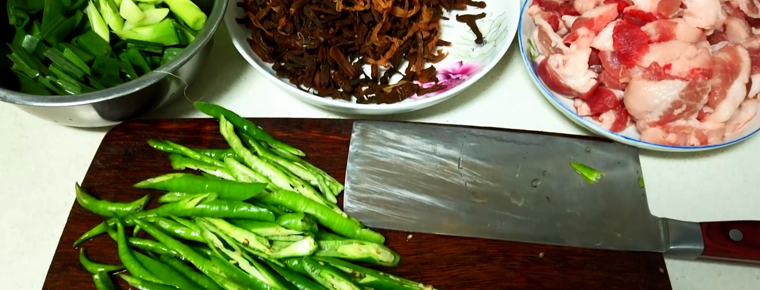a kind of local opera popular in Shandong Province
a kind of local opera popular in Shandong Province
Liuqiang, a local traditional drama in Jimo City, Shandong Province, is one of the national intangible cultural heritage.
During the reign of Qianlong, "elbow drum" was introduced into Jimo, and merged with local folk tunes and Yangko to form Liuqiang, which was mainly spread in Jimo area, then in Jiaodong area and into Qingdao urban area. Liuqiang opera has more than 120 traditional operas, more than 80 transplanted ones and more than 40 modern ones. Its performance style is fresh, simple and interesting.
On June 7, 2008 , Liu Qiang was approved by the State Council of the People's Republic of China to be included in the second batch of national intangible cultural heritage directories, numbered IV-117.
historical origin
Historical origin
During the reign of Qianlong, floods, droughts and insect disasters occurred one after another in the west of Jimo. Many people left their homes and came to Jimo. Because of the difficulty of begging, it is convenient to use their local minor and sing when begging. At that time, the melody sung by the victims spread to the folk "elbow drum" tune, which spread to Jimo, and merged with local folk songs and Yangko, forming a new tune - Liuqiang.
developing process
According to the investigation report of Jimo County Cultural Museum:
In the thirteenth year of Emperor Qianlong (1748), the year was not good, floods, droughts and insect infestation came one after another, and the life of the masses could not be maintained. In the West (west of Jimo County), the masses of the counties left their homes and fled everywhere. There were many people who came to Jimo County.
Because of the difficulty of begging, it is convenient to use their tunes and sing when begging. Local people call the opera they sing "Zhou Guzi", or "elbow drum", which is also known as "Ben elbow drum" in local areas. When "elbow drum" was first introduced to Jimo, the local people liked it very much. Some people learned to sing with them. The most popular areas were Liu Jiazhuang, Lugozhuang, Noocheng and Fengxiangzhuang villages near Guhe River in Western Jimo.
Later, Ben's elbow drum merged with Jimo local folk songs and Yangko. After a period of time, not only the tone changed, but also the rap style gradually evolved into a slab cavity.
In the early stage, the singing form was relatively simple, with only one drum or a set of gutta-pads for the music. There were only three or five actors in each performance, playing different roles. Sometimes, according to the plot, an actor was required to play several roles in the same play. Actors'make-up, costumes and facial makeup are not strictly regulated. Singers are known as "climbing stools" when they sit down in the streets and alleys of fairs and towns during leisure time and festivals.
Although simple in form and vulgar in expression, it is vivid and interesting, and is well received by the masses.
This form of performance lasted for more than 100 years.
Around 1900, under the influence of "Four Strings Minor" in Laiyang County, Liuqiang adopted the accompaniment of "Four Strings" or "Four Hus" accompanied by Suona Bang Tune.
When accompanied by four HUS at the beginning, because there was no music score, the pianists and actors could not sing in perfect harmony, and they cooperated with each other to "slip" upwards, so they were called "slip tune".
Later, artists felt that the word "slip" was not elegant, so they borrowed the homophonic word "Liu" and formally named it "Liu Qiang".
Because Liu Qiang is widely spread in Jimo, people call Jimo "the land of Liu Qiang" and Liu Qiang "Jimo Liu Qiang". After the formation of Liuqiang as a kind of local drama, it began to take the stage. Every year, at Temple fairs, artists took part in temporary performances. In the course of performance, accompaniment instruments are gradually improved, role division is more and more fine, make-up, clothing and facial makeup are also more stringent requirements, and more widely circulated areas.
Wu Changyuan of the Qing Dynasty, in Yanlan Xiaopu from the forty-eighth year of Qianlong (1783) to the fiftieth year of Qianlong, recorded 26 actors who performed in Beijing during the ten years from the thirty-ninth year of Qianlong (1774) to the completion of the book. Among them, Yu Yongting, the Mohist, ranked second, and was honored as a "celebrity".
Flower Department, also known as "miscellaneous" and "random bullet", is a general term for local operas such as Bangzi, Geyang Opera and so on.
Liuqiang is also a Bangzi opera system, that is, the Bangzi opera sung by Mohists in Yongting can not be separated from the original "elbow drum" charm of Liuqiang.
These two historical materials support the historical fact that elbow drum was introduced into Jimo during Qianlong period, and quickly transformed from folk ditty to singing opera.
Around 1900, in Liujiazhuang, Grade 7, Qianfeng and Nanquan in Western Moxico, artists organized five liuqiang class clubs with initial scale. Besides performing in the county, they also toured Pingdu, Yexian and Laiyang.
After the 1911 Revolution, artists Jiang Wenxing, Jiang Wenlong, Dong Qiansan, Fan Youshan, Lan Dexian, Liu Zuolian and Yang Lida went to Qingdao Dongzhen Civilian Market, Mainland Market, Zhongshan Street's "Chopping Wood Court" and small theaters in Sifang and Cangkou to perform Liuqiang. Their performances go back and forth to the countryside or Qingdao, between the countryside and the city.
After the July 7th Incident in 1937, people in the countryside were not allowed to gather to sing operas. Liu Zuolian and others brought the troupe back to Qingdao. The return to Qingdao not only enlarged the team, but also found a foothold in Dongzhen, the troupe had a base, and the performance began to be fixed. Later, the Liuqiang Opera Troupe in Qingdao was founded on the basis and backbone of these actors. During this period, Liuqiang performers often performed with Bangzi, opera critics, Maoqiang, Peking Opera and other actors of different types. Sometimes, actors performed a play with the voice of various kinds of operas. Many of the strengths of these operas have been absorbed organically and in large quantities and merged into Liu Qiang. Liuqiang and Bangzi performed together more often, so at that time Liuqiang was also called "Liuqiang Er".
After the founding of New China, Liuqiang has gained new development and amateur theatre troupes have spread all over urban and rural areas.
Qingdao established the "Venus" Liuqiang Opera Troupe in 1950. In 1959, it was renamed Qingdao Liuqiang Opera Troupe and went to Beijing three times to Zhongnanhai. It reported to the national leaders Liu Shaoqi, Zhou Enlai, Zhu De, Chen Yi and Peng Zhen that it performed traditional operas such as "Zhao Meilong Guandeng", "Cutting Robe" and "Separating Curtain".
The Chinese Dramatists Association held a symposium to discuss the origin, artistic characteristics and development direction of Liu Qiang. The Guangming Daily, Wen Hui Bao, Beijing Times and Drama Daily published news and commentary articles respectively, giving Liu Qiang a high evaluation, which is known as "Jiaodong Flower". As a result, Liu Qiang has become one of the well-known local operas in China. Development has entered its heyday.
Jimo County established a professional Liuqiang Opera Troupe in 1956.
In 1959, Liuqiang Jinjing went to Zhongnanhai three times to report and perform traditional operas such as Zhao Meilong Guandeng and Cutting Robe. State leaders Liu Shaoqi, Zhou Enlai, Zhu De, Chen Yi and Peng Zhen attended the performance and met with the staff of the troupe. The professional Liuqiang Opera Troupe was founded in Pingdu County in 1959 (revoked in 1960).
Liu Qiang was destroyed during the Cultural Revolution, and the professional theatre troupes in Jimo and Qingdao were abolished successively.
In 1976, the Meliu Opera Troupe was restored. It is also the only professional troupe of this kind of opera. It has been listed in the ranks of "the first troupe in the world" by the Ministry of Culture.
Jimo City has thus become "the home of folk Liuqiang Opera art in Shandong Province".
After the restoration of the Moliuqiang Opera Troupe, the Qingdao Cultural Bureau dispatched a counseling group composed of Li Yuxiang, Zhang Xiuyun, Zhong Zhaodong, Li Yulian and Lu Xiyu to give two years'artistic guidance to the young actors, and then the troupe began to perform normally.
In January 1989, the Meliu Opera Troupe re-entered Jinjing and performed its own large-scale modern drama between love and kindness. Wang Jifu, Vice Minister of Culture, Ruan Ruolin, Vice Minister of Radio, Film and Television, and Wu Zuguang, Huang Zongjiang, Ma Shaobo, Guo Hancheng, Xinfengxia and Quliuyi, well-known figures in theatre and art circles, watched the performance. For this creation and performance, 21 newspapers and magazines in China and Beijing Television Station reported and commented on it successively. Meanwhile, the actress Yuan Ling was accepted as a disciple by the famous opera critic Xin Fengxia. At present, the troupe is constantly overcoming difficulties, striving to open up the performance market and sticking to long-term performance.
Cultural characteristics
language
Liuqiang uses Jimo dialect, which belongs to Jiaoliao Mandarin of northern Chinese dialect. It is easy to understand, simple and friendly, full of exaggeration, full of flavor of life, and has strong local flavor. At the same time, be good at using comparison and exaggeration techniques to enhance the appeal.
Music
Liuqiang is accompanied by folk music, which is divided into Wenchang and Wuchang.
The Wenchang is composed of strings and wind instruments. The main stringed instruments are Sihu, Erhu, Zhonghu, Pipa, Yueqin, Sanxian, Yangqin, etc. The wind instruments include Sheng, Suona, flute, etc. Wind music is mainly used to play through doors and cards, playing excessive and creating atmosphere.
The main instruments of the martial arts arena are plate drum, big gong, small gong, cymbal, small cymbal, dumb cymbal, bell-touching, big and small hall drum, etc. They are used for percussion accompaniment.
Music scores and drums are mostly borrowed from Liuzi and Peking Opera sets.
Qu card
Liuqiang's music cards include singing cards, string accompaniment cards and playing cards. Most of them are developed from local folk songs and minors, and some are transplanted from other operas.
The most commonly used music brands are "Four Unlike", "Sad Ducks", "Flower Ducks", "Sentences Double", "Dou Yeqing", "Chao Tianzi", "Tide to Heaven", "Depression in Sorrow", "Hibiscus Flower", "Nangong", "Big Saw vat" and so on.
perform
Liuqiang's performance has also undergone a process of development from rough to delicate. In the long-term practice, it has gradually been transformed into the application of the basic skills of "hands, eyes, body, hair and steps", which organically combines singing, reading, doing, playing and dancing, and improves the performing art. Liuqiang mainly performs singing operas with tortuous plots, including tragedy, comedy, farce and so on. Since the 1920s, Liuqiang has been influenced by other operas and combined with local folk martial arts. It has also started to perform martial arts. Dao Madan and Wusheng have appeared and gradually formed a stylized routine of martial arts.
role
Liu Qiang's characters are divided into Sheng, Dan, Jing, Du and Ugly, which are basically the same as other operas.
Shengxing can be divided into Dasheng, Xiaosheng, Laosheng and Washeng, all singing in their native voice.
Danxing is divided into Qingyi, Huadan, Dao Madan, Lao Dan, Caidan and so on. The ending is often sung in a false voice.
Jingxing, commonly known as Huafa, is a folk opera singer.
At present, the characteristics of middle-aged and old-aged roles in the final performance are not obvious, and most of them are merged into Shengxing.
Ugly deeds often play negative, funny or silly roles.
Music for voices in a Chinese Opera
The formation of Liu Qiang's aria experienced a development process from free singing without accompaniment to accompaniment tune singing. The basic aria of Liu Qiang's predecessor, Ben elbow drum, is "oh ho ho ho". Its starting and ending tone is a chorus of chorus, or chorus, or hand drum instead of harmony. "Ooh-ho" is a padded word in the line cavity, without any explanation. Liuqiang's singing style is divided into tragic tune, also known as "tragic palace" or "tragic worker", flower tune, tone, anti-tone, Nangong, doll tune and so on. Among them, tragic tune and flower tune are the basic singing tune, known as "mother song". From the board type or rhythm, there are adagio, adagio, original board, pointed board, scattered board, crying head, 26, running water, fast board, stacking board, etc. The final note of the flower tune plays the transition of "stack" of Suonaqu, inheriting and developing the singing method of "oh Suonaqu".
Representative repertoire
As of September 2002, according to incomplete statistics, there are more than 120 traditional dramas, more than 80 transplanted dramas and more than 40 modern dramas.
Among them, the main representative traditional operas are four major Beijing (Tokyo, Xijing, Nanjing, Beijing), eight major records (The Story of T-shirts, the Story of Embroidered Shoes, the Story of Jade Cup, the Story of Golden Hammer, the Story of Kites, the Story of Keys, the Story of Silan and the Story of Fire Dragon).
The transplanted dramas mainly include Forcible Marriage, Qin Xianglian, Dajin Zhi, Baolian Lantern, Fenghuanjiao and so on. The transplanted drama has a wide range of themes and vivid plots. Its content is mostly based on some historical stories and folk legends, reflecting and promoting love and ethics between men and women. Most of the plays have the theme of telling people's hearts, expressing people's good wishes, praising heroes and cursing the evil of the world. Feudal superstition and karma are the dross of a few plays.
Modern dramas mainly include "Little Two Black Marriage", "Spring Blossom", "Picking Seals" and "Jiao Yulu". The content of modern drama is mostly to praise the leadership of the Communist Party and reflect the new people and events in the new society.
Distribution area
Liuqiang's spreading area is centered on Jimo City, which extends to Pingdu City, Laiyang City, Laixi City, Haiyang City, Jiaozhou City, adjacent Jimo City and Qingdao City.
Inheritance and protection
Inheritance value
Liuqiang has high historical and cultural value and use value. Liuqiang originated from the folk and has a strong local flavor. Its language is easy to understand and its melody is catchy and catchy. It is loved by the people. In the poor old times, it was the main spiritual food of Jimo people. Its emergence reflects the artistic creativity of the people in Jimo area and adds a shining page to the history of Chinese opera.
Since the founding of New China, the art of Liuqiang has been improved and expanded in an all-round way. It can not only perform traditional operas, but also modern operas, as well as martial arts. Its transmission area is also expanding, not only in the Jiaodong Peninsula, but also to Hebei, Jiangsu, Northeast China, for a wider audience to understand and like.
The formation of Liuqiang is of great research value to the production, dissemination and multiplication of local operas in Bangzi sub-system in Jiangsu, northern Henan Province and Shandong Province.
Inheriting characters
Yuan Ling, female. On December 28, 2017, Peng Meiying was selected as the representative successor of the fifth batch of national intangible cultural heritage projects, which was declared by Jimo City, Shandong Province. Project name: Liuqiang.
protective measures
On the morning of January 30, 2015, the unveiling ceremony of Liuqiang Children's Training Base was held at Jimo No. 4 Experimental Primary School. Since 2011, Jimo Liuqiang Opera Troupe has cooperated with the Fourth Primary School of Laboratory, regularly arranging professional actors to teach Liuqiang for students, arousing their enthusiasm to learn and inherit Liuqiang, so that Liuqiang Art can flourish in the younger generation. At present, 20 students of Liuqiang professional class have been trained. After the establishment of Liuqiang Children's Training Base, the fourth primary school will incorporate Liuqiang into the school-based curriculum, arrange music teachers to compile Liuqiang teaching plan, and carry out activities such as popularization of opera knowledge and competition of opera fragments among students. At present, more than 160 students have been selected to form Liuqiang Society.
social influence
Important activities
Since 2003, Jimo Liuqiang Opera Troupe has recorded and published more than 30 Liuqiang Opera CD-ROMs, including Zhao Meilong Guandeng, Qin Xianglian, Sisters Easy Marriage, Wall Head, Embroidered Shoes, Fei Jie, Borrowing New Year, Little Aunt Xian, Mother Tiger on the sedan chair, Luo Shi Ji, Meng Jiangnu, Long Jiang Nuan, Three Sons Struggling for Father, Hu Lin Snatching for Father, Shuangyu Cicada and Cailou. Records, Beggars and Top Men, etc.
Qingdao Haiyun Liuqiang Opera Troupe and other folk opera troupes have also published more than 20 Liuqiang CD-ROMs, such as "Mouth Mother", "Three Sedans", "Painted Skin", "Xijing", "Fire Dragon", "Double Butterflies" and "Moon Wall".
In early February 2013, the column group of CCTV Education Channel "Non-legacy China" came to Jimo City to shoot the national non-legacy project - Meliuqiang.
Honorary commendation
In 1954, at the first opera performance conference in Shandong Province, the traditional Liuqiang opera "Gong Gong Fu", which was reorganized and adapted, won the Excellent Screenplay Award and the Excellent Actor Award.
Liuqiang TV drama "Wang San Selling Fish" won the second prize in 1985 for the first Chinese dramatic TV film "Eagle Image Award".
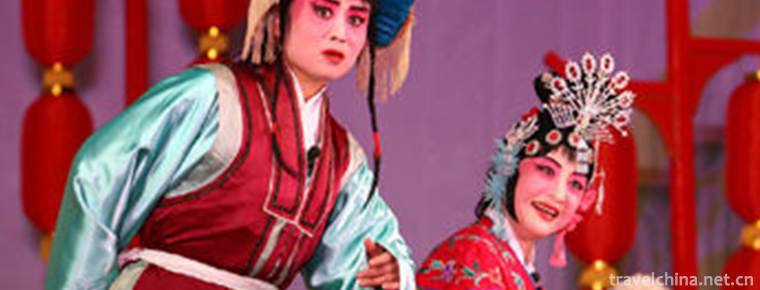
-
Sliced Fish in Hot Chili Oil
Boiled fish, also known as river boiled boiled fish and boiled fish fillet, was first popular in Cui Yun Township, Yubei District, Chongqing..
Views: 247 Time 2018-10-27 -
Longkou Nanshan Scenic Area
Nanshan tourist scenic spot is located in the beautiful scenery of Lu Shan in Longkou City, Yantai City, Shandong province. The scenic spots of Nanshan Temple.
Views: 115 Time 2018-12-08 -
Hometown of Zhu De
Zhude Hometown Scenic Spot: National AAAAA Tourist Scenic Spot, National Key Cultural Relics Protection Units, National Patriotic Education Demonstration Base, National Anti-corruption Education Base,.
Views: 267 Time 2018-12-12 -
Guyang Qincheng Great Wall Site
The site of the Qincheng Great Wall in Guyang is located in the Yinshan Mountains in the central part of Inner Mongolia Autonomous Region, along the Damiao, Yinhao and Xidoupu in the northern part of .
Views: 118 Time 2019-01-12 -
Xianghu Lake
Xianghu Lake is known as the "sister lake" of the West Lake for its beautiful scenery. It is a lake located in Xiaoshan District, Hangzhou City, Zhejiang Province, China. Xianghu Lake is als.
Views: 169 Time 2019-02-25 -
Imitated Diet Making Skills of Imperial Diet in Qing Dynasty
Imitated meals (imperial meals of the Qing Dynasty) production skills, Beijing Xicheng District local folk traditional skills, one of the national intangible cultural heritage..
Views: 290 Time 2019-04-29 -
Hongdongs custom of visiting relatives
The custom of walking relatives in Hongdong is a kind of Han traditional folk culture which spreads in Ganting, Wucun, Xincun, Longma and Wanan townships.
Views: 131 Time 2019-05-03 -
Liaocheng acrobatics
Liaocheng acrobatics is a traditional folk acrobatics art in Shandong Province. Liaocheng is one of the birthplaces of Chinese acrobatics. In the late Neolithic period, Liaocheng was the main area whe.
Views: 147 Time 2019-05-13 -
Bamboo weaving
The traditional bamboo weaving technology has a long history and is rich in the crystallization of the hard work of the working people of the Chinese nation. Bamboo weaving crafts are divided into fin.
Views: 169 Time 2019-08-10 -
Zong Baonao
The dance used for sacrifice - the Yao Zong Baonao Dance is evolved from an ancient legend. According to Changtang Yao people, from generation to generation, in ancient times, a beautiful Yao mother l.
Views: 336 Time 2019-08-16 -
Chaohu University
Chaohu College (Chaohu University), located in Chaohu, Hefei, Anhui, Chaohu half soup hot spring health resort, is a Anhui provincial full-time undergraduate institutions, local application oriented i.
Views: 178 Time 2019-11-08 -
Stir fried pork with salted vegetables
Stewed pork with dried plum is a famous traditional flavor dish in Shaoxing, Zhejiang Province. The main raw materials are dried plum and streaky pork. Dried vegetables absorb meat fat to remove astri.
Views: 461 Time 2020-03-18
